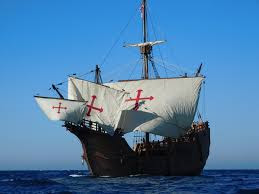Nothing Trump does surprises me anymore, but it’s still saddening to read that he’s now proposing a delay to the presidential elections.
It’s unsurprising because the US economy is in terrible condition. At the same time, deaths from Coronavirus have risen above 150,000 and are running at around 1500 a day. By way of contrast, Spain, where I live, is struggling to contain the epidemic but has a daily death toll in single figures.
The US has going on seven times the population but perhaps as much as 300 times as many daily deaths.
No wonder, then, that Trump would like the election held later, when the news, both on the economy and the epidemic, may be less damning for him.
What is even more depressing is that he’s challenging the validity of postal voting. Many prefer voting by post precisely because they don’t want to expose themselves to Coronavirus infection by attending polling stations in person. It’s true, too, that historically such votes tend to break more for the Democrats than the Republicans. That doesn’t make them fraudulent, as Trump claims against all the evidence, just less favourable to him.
Why that’s so particularly worrying is that it sounds far less like an argument for delaying the election, as for challenging the validity of the results if it’s held as planned and he loses. It’s by no means certain Biden will win, but it does look as though Trump is preparing a plan B, in the event of his losing.
In other words, it feels as though Trump is preparing to steal the election.
 |
| Biden (left) working to win by the rules Trump: preparing to rob him? |
He could. Just imagine the following scenario.
The Democrat wins the presidential election by a small but nonetheless clear majority of the popular vote, say 50.9% to 47.9%.
And he wins the electoral college by a similarly small but conclusive margin of 39 votes over his Republican opponent.
Then things turn murky. Republicans challenge the votes of four states amounting, between them, to 20 electoral college votes, all of them for the Democrat. Removing those disputed votes from his total would leave him, exasperatingly, just one vote short of a majority – still 19 votes ahead of his rival, but not able to clinch the election.
Of course, he only needs one of the disputed electors to win. Things still look good for a Democratic victory. Republicans are worried.
After long weeks of negotiation, the two Parties agree to arbitrate the result. A special commission will adjudicate on the votes cast. It will include five members of the House of Representatives, five Senators and five Justices of the Supreme Court.
And that’s when the wheels start to come off the bus. Because on every vote, the commission splits 8:7 in favour of the Republicans. As a result, every single one of the disputed votes is awarded to the Republican candidate who emerges with an electoral college majority of just one and is duly sworn in as President.
The Democrats needed just one of those votes. They received none. And so they were defeated.
The worst thing about this scenario is that, far-fetched as it might sound, it’s no fantasy. In fact, it’s already happened.
What I was describing was the 1876 Presidential election. Samuel Tilden, the Democrat, was defeated, or rather robbed of victory. His Republican opponent, Rutherford Hayes, won the election, or rather had it stolen and handed to him. He became the nineteenth President.
Never heard of him? No surprise there. He deserves his obscurity. He achieved little and left little trace. Sadly, the same can’t be said of Trump. As the death toll from Coronavirus, and the damage to the economy, of the US and the world, have shown, his legacy is assured. Another four years, and there’s every chance it’ll be far more devastating still. And all the more difficult to recover from.
The only way to make it hard for Trump to steal the election is to make sure his defeat is so comprehensive that a challenge to any votes would not change the result.
Back in 2016, a lot of people, including friends of mine, couldn’t bring themselves to vote for Hillary. Let’s hope that this time around, whatever misgivings they may have about Biden, they understand the importance of backing the candidate best placed to beat Trump.
Electing Rutherford Hayes was a dirty business. But re-electing Trump would be a real catastrophe. And be warned: he’s preparing the ground to steal what he can’t win.
Postscript
Though Samuel Tilden was, no doubt, robbed back in 1876, his campaign could hardly claim to be pure or admirable. Many of his wins came in the deep south, and were only obtained because white agitators physically threatened black voters to prevent them voting. Eleven years after a Civil War during which a Republican President, Lincoln, had freed them from slavery, the vast majority of blacks voted Republican.
In other words, had Tilden won, his victory would not have been that much cleaner than Hayes’.
 |
| Rutherford Hayes (left), the Republican Samuel Tilden saw his victory stolen and handed to Hayes |
Still. This time, though, Biden is trying to play by the rules. Let’s hope that doesn’t cost him victory.





















